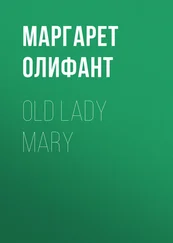Маргарет Олифант - Brownlows
Здесь есть возможность читать онлайн «Маргарет Олифант - Brownlows» — ознакомительный отрывок электронной книги совершенно бесплатно, а после прочтения отрывка купить полную версию. В некоторых случаях можно слушать аудио, скачать через торрент в формате fb2 и присутствует краткое содержание. Жанр: foreign_prose, literature_19, foreign_antique, на английском языке. Описание произведения, (предисловие) а так же отзывы посетителей доступны на портале библиотеки ЛибКат.
- Название:Brownlows
- Автор:
- Жанр:
- Год:неизвестен
- ISBN:нет данных
- Рейтинг книги:5 / 5. Голосов: 1
-
Избранное:Добавить в избранное
- Отзывы:
-
Ваша оценка:
- 100
- 1
- 2
- 3
- 4
- 5
Brownlows: краткое содержание, описание и аннотация
Предлагаем к чтению аннотацию, описание, краткое содержание или предисловие (зависит от того, что написал сам автор книги «Brownlows»). Если вы не нашли необходимую информацию о книге — напишите в комментариях, мы постараемся отыскать её.
Brownlows — читать онлайн ознакомительный отрывок
Ниже представлен текст книги, разбитый по страницам. Система сохранения места последней прочитанной страницы, позволяет с удобством читать онлайн бесплатно книгу «Brownlows», без необходимости каждый раз заново искать на чём Вы остановились. Поставьте закладку, и сможете в любой момент перейти на страницу, на которой закончили чтение.
Интервал:
Закладка:
“And yet there was once somebody that was fond of you,” said little Fanny breathlessly. “Poor Harry Mansfield, who was so nice—every body knows about that—and, I do think, Mr. Keppel, if you would not be so saucy to him—”
“Mr. Keppel!” exclaimed Sara, with some scorn. “But I will tell you plainly what I mean to do. Mind it is in confidence between us two. You must never tell it to any body. I have made up my mind to marry whoever papa wishes me to marry—I don’t mind who it is. I shall do whatever he says.”
“Oh, Sara!” said her young companion, with open eyes and mouth, “you will never go so far as that.”
“Oh yes, I will,” said Sara, with calm assurance. “He would not ask me to have any body very old or very hideous; and if he lets it alone I shall never leave him at all, but stay still here.”
“That might be all very well for a time,” said the prudent Fanny; “but you would get old, and you couldn’t stay here forever. That is what I am afraid of. Things get so dull when one is old.”
“Do you think so?” said Sara. “I don’t think I should be dull—I have so many things to do.”
“Oh, you are the luckiest girl in the whole world,” said Fanny Hardcastle, with a little sigh. She, for her own part, would not have despised the reversion of Mr. Keppel, and would have been charmed with Jack Brownlow. But such blessings were not for her. She was in no hurry about it; but still, as even now it was dull occasionally at the rectory, she could not but feel that when she was old—say, seven-and-twenty or so—it would be duller still; and if accordingly, in the mean time, somebody “nice” would turn up—Fanny’s thoughts went no farther than this. And as for Sara, she has already laid her own views on the subject before her friends.
It was just then that Jack Brownlow, leaving the dining-room, invited young Keppel to the great hall door to see what sort of a night it was. “It looked awfully like frost,” Jack said; and they both went with serious countenances to look out, for the hounds were to meet next day.
“Smoke! not when we are going back to the ladies,” said Keppel, with a reluctance which went far to prove the inclination which Fanny Hardcastle had read in his eyes.
“Put yourself into this overcoat,” said Jack, “and I’ll take you to my room, and perfume you after. The girls don’t mind.”
“Your sister must mind, I am sure,” said Keppel. “One can’t think of any coarse sort of gratification like this—I suppose it is a gratification—in her presence.”
“Hum,” said Jack; “I have her presence every day, you know, and it does not fill me with awe.”
“It is all very easy for you,” said Keppel, as they went down the steps into the cold and darkness. Poor fellow! he had been a little thrown off his balance by the semi-intimacy and close contact of the little dinner. He had sat by Sara’s side, and he had lost his head. He went along by Jack’s side rather disconsolate, and not even attempting to light his cigar. “You don’t know how well off you are,” he said, in touching tones, “whereas another fellow would give his head—”
“Most fellows I know want their heads for their own affairs,” said the unfeeling Jack. “Don’t be an ass; you may talk nonsense as much as you like, but you know you never could be such an idiot as to marry at your age.”
“Marry!” said Keppel, a little startled, and then he breathed forth a profound sigh. “If I had the ghost of a chance,” he said, and stopped short, as if despair choked farther utterance. As for Jack Brownlow, he was destitute of sensibility, as indeed was suitable to his trade.
“I shouldn’t say you had in this case,” he said, in his imperturbable way; “and all the better for you. You’ve got to make your way in the world like the rest of us, and I don’t think you’re the sort of fellow to hang on to a girl with money. It’s all very well after a bit, when you’ve made your way; but no fellow with the least respect for himself should think of such a thing before, say five-and-thirty; unless, of course, he is a duke, and has a great family to keep up.”
“I hope you’ll keep to your own standard,” said Keppel, with a little bitterness, “unless you think an only son and a duke on equal ground.”
“Don’t sneer,” said Jack; “I’m young Brownlow the attorney; you know that as well as I do. I can’t go visiting all over the country at my uncle’s place and my cousin’s place, like you. Brownlows is a sort of a joke to most people, you know. Not that I haven’t as much respect for my father and my family as if we were all princes; and I mean to stand by my order. If I ever marry it will be twenty years hence, when I can afford it; and you can’t afford it any more than I can. A fellow might love a woman and give up a great deal for her,” Jack added with a little excitement; “but, by Jove! I don’t think he would be justified in giving up his life.”
“It depends on what you call life,” said Keppel. “I suppose you mean society and that sort of thing—a few stupid parties and club gossip, and worse.”
“I don’t mean any thing of the sort,” said Jack, tossing away his cigar; “I mean working out your own career, and making your way. When a fellow goes and marries and settles down, and cuts off all his chances, what use is his youth and his strength to him? It would be hard upon a poor girl to be expected to make up for all that.”
“I did not know you were such a philosopher, Jack,” said his companion, “nor so ambitious; but I suppose you’re right in a cold-blooded sort of way. Anyhow; if I were that duke—”
“You’d make an ass of yourself,” said young Brownlow; and then the two congratulated each other that the skies were clouding over, and the dreaded frost dispersing into drizzle, and went in and took off their smoking coats, and wasted a flask of eau-de-cologne, and went up stairs; where there was an end of all philosophy, at least for that night.
And the seniors sat over their wine, drinking little, notwithstanding Mr. Hardcastle’s ruddy countenance, which was due rather to fresh air, taken in large and sometimes boisterous drafts, than to any stronger beverage. But they liked their talk, and they were, in a friendly way, opposed to each other on a great many questions; the rector, as in duty bound, being steadily conservative, while the lawyer had crotchets in political matters. They were discussing the representatives of the county, and also those of some of the neighboring boroughs, which was probably the reason why Mr. Hardcastle gave a personal turn to the conversation as he suddenly did.
“If you will not stand for the borough yourself, you ought to put forward Jack,” said the rector. “I think he is sounder than you are. The best sign I know of the country is that all the young fellows are tories, Brownlow. Ah! you may shake your head, but I have it on the best authority. Sir Robert would support him, of course; and with your influence at Masterton—”
“Jack must stick to his business,” said Mr. Brownlow; “neither he nor I have time for politics. Besides, we are not the sort of people—county families, you know.”
“Oh, bother county families!” said Mr. Hardcastle. “You know there is not another place in the county kept up like Brownlows. If you will not stand yourself, you ought to push forward your boy.”
“It is out of my way,” said Mr. Brownlow, shaking his head, and then a momentary smile passed over his face. It had occurred to him, by means of a trick of thought he had got into unawares—if Sara could but do it! and then he smiled at himself. Even while he did so, the recollection of his disturbed day returned to him; and though he was a lawyer and a self-contained man, and not given to confidences, still something moved in his heart and compelled him, as it were, to speak.
Читать дальшеИнтервал:
Закладка:
Похожие книги на «Brownlows»
Представляем Вашему вниманию похожие книги на «Brownlows» списком для выбора. Мы отобрали схожую по названию и смыслу литературу в надежде предоставить читателям больше вариантов отыскать новые, интересные, ещё непрочитанные произведения.
Обсуждение, отзывы о книге «Brownlows» и просто собственные мнения читателей. Оставьте ваши комментарии, напишите, что Вы думаете о произведении, его смысле или главных героях. Укажите что конкретно понравилось, а что нет, и почему Вы так считаете.












